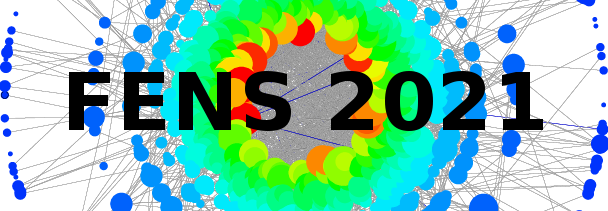Speakers
Description
We study an agent-based model of innovation diffusion on the Watts-Strogatz random graphs. The model is based on the $q$-voter model with a noise (with nonconformity, in the terminology of social psychology), which has been previously used to describe the diffusion of green products and practices. It originates from the $q$-voter model with independence, known also as the noisy nonlinear voter or the noisy $q$-voter model. In the original model states $\uparrow$ (yes/agree) and $\downarrow$ (no/disagree) are symmetrical and in case of independent behaviour each of them is taken with the same probability. However, when the model is used to describe diffusion of innovation the up-down symmetry is broken. We investigate the model analytically via mean-field approximation, which gives the exact result in case of a complete graph, as well as via more advanced method called pair approximation to determine how the average degree of the network influences the process of diffusion of innovation. Additionally, we conduct Monte Carlo simulations to check in which cases the agent-based model can be reduced to the analytical one and when it cannot be done. We obtain the $S$-shaped curve of the number of adopters in time that agrees with empirical observations. We also highlight that the time needed for adoption depends on model parameters. Furthermore, we present the trajectories and the stationary concentration of adopted for different sets of parameters to systematically analyze the model and determine when the adoption would fail.
Acknowledgement
This research is supported by project “Diamentowy Grant” DI2019 0150 49 financed by Polish Ministry of Science and Higher Education.

